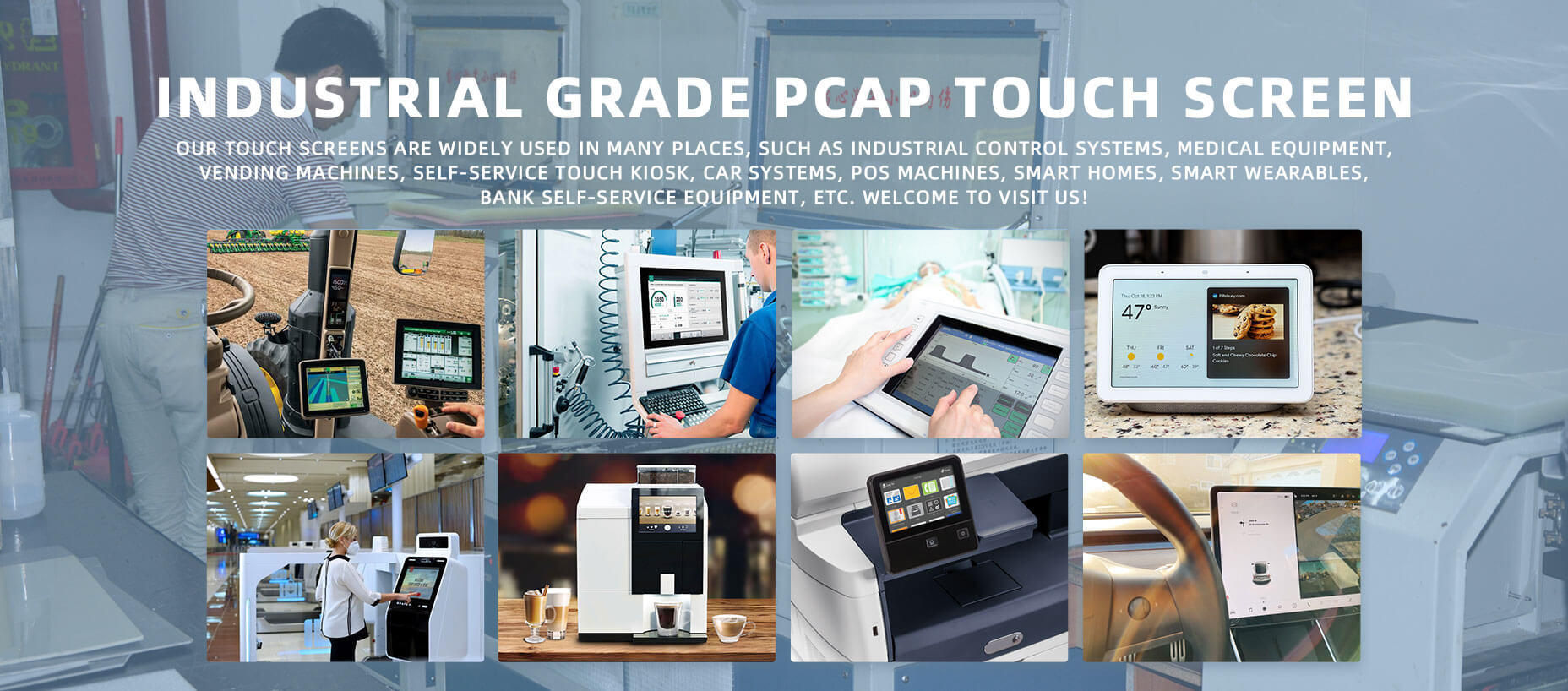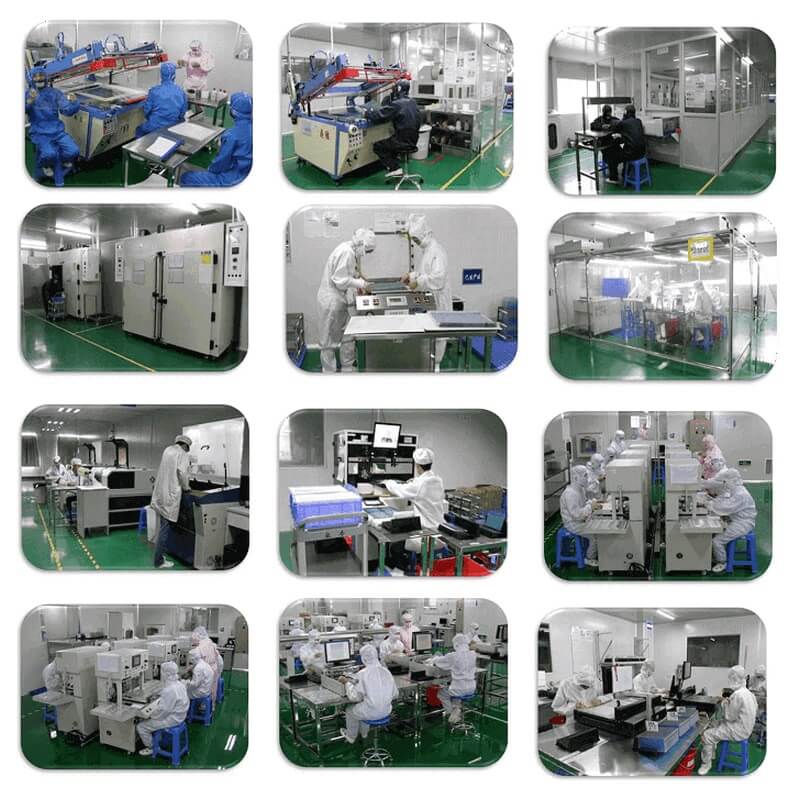News
Understanding P-cap capacitive Touchscreens: A Comprehensive Guide
In the digital age, P-cap capacitive touchscreens have become an integral part of our daily lives. From smartphones and tablets to kiosks and ATM machines, this technology allows users to interact directly with a device without the need for a traditional keyboard or mouse. This article delves into the world of touchscreens, exploring their history, types, how they work, and their applications.
The Evolution of touchscreens
The concept of P-cap capacitive touchscreens can be traced back to the 1960s, but it wasn't until the 1980s that they began to gain popularity. Early touchscreens were resistive, relying on pressure to register input. The invention of capacitive touchscreens in the late 2000s, which detect the presence of conductive objects like fingers, revolutionized the technology, leading to the sleek, responsive devices we use today.
How touchscreens Work
Resistive touchscreens
Resistive touchscreens consist of two transparent layers separated by a small gap. When the screen is touched, the two layers make contact at that point. By measuring the change in electrical current, the device can determine the touch location. These screens are durable and inexpensive but offer lower sensitivity and multi-touch capabilities.
P-cap capacitive touchscreens
Capacitive touchscreens, used in most modern devices, work by sensing the electrical properties of the human body. The screen is coated with a conductive material, and when a finger approaches, it disrupts the screen's electrostatic field. This change allows the device to calculate the touch point. Capacitive screens support multi-touch gestures like pinching and swiping.
Applications of touchscreens
touchscreens have found their way into virtually every aspect of modern life. In consumer electronics, they allow for intuitive interaction with phones, tablets, and wearables. In the automotive industry, touchscreens serve as the interface for navigation and entertainment systems. In retail and banking, they streamline transactions through kiosks and ATM machines. Moreover, touchscreens are critical in healthcare settings, enabling quick data entry and access to patient records.
The Future of touchscreens
The future of touchscreens lies in making them more integrated into our environments. Innovations like foldable screens, haptic feedback, and improved durability are on the horizon. Researchers are also exploring ways to make touchscreens more accessible to people with disabilities, such as by incorporating tactile feedback for the visually impaired.
Challenges and Considerations
Despite their widespread use, touchscreens face challenges. Durability, especially in harsh environments, remains a concern. Moreover, as screens become larger and more integrated into various devices, ensuring responsiveness and accuracy is paramount. Additionally, there's an ongoing effort to reduce the latency between a touch and the device's response, aiming for a more instantaneous interaction.
touchscreens have transformed how we interact with technology, making it more intuitive and accessible. As we look to the future, continued innovation in this field promises to further integrate touchscreens into our lives, making our interactions with digital devices even more seamless and natural. As we navigate this evolving landscape, the potential for new applications and improvements to touchscreen technology seems limitless.
DINGTOUCH is a company specializing in the R&D and production of touch screen technology, headquartered in Shenzhen, China. As a professional touch screen supplier, DINGTOUCH is committed to providing high-quality, stable and reliable touch screen products to meet the diverse needs of customers. We continue to carry out technological innovation and product optimization to ensure that its touch screen products have good sensitivity, accuracy and durability.
In addition to the products themselves, we also focus on cooperation and communication with customers, and are committed to providing customized solutions and excellent after-sales services. Through continuous efforts to improve product quality and customer satisfaction, we have established a good reputation in the touchscreen industry and won widespread market recognition.What DINGTOUCH can do:
• PCAP maximum size 65”
• Multi-touch (Touch screen can be customized to your needs.)
• Optical bonding service/air bonding
• LCD interface: HDMI/RGB/MIPI/LVDS/EDP, etc.
• PCAP interface: IIC/USB interface
• CTP can customize the cover glass surface treatment process AG (anti-glare), AR (anti-reflection), AF (anti-fingerprint), waterproof, and glove touch
• Supports 0.55 mm-12 mm coverslip touch.
• Support operating temperature: -40℃-90℃.
Dingtouch Industrial Capacitive Touch Screen Manufacturer
In conclusion, Dingtouch as a professional touch screen manufacturer with more than 10 years touch screen experience.We have many capacitive touch screen. Such as5 inch touch screen,7 inch touch screen,10.1inch touch screen,15 inch touch screen,15.6 inch touch screen,17 inch touch screen,18.5 inch touch screen,19 inch touch screen,21.5 inch touch screen,32 inch touch screen, However, we also welcome to customize your own touch screen . Contact our team today to learn what capacitive touch screen are best for our retail business needs.
Contact us NOW! sales@szdingtouch.com
CATEGORIES
CONTACT US
Contact: Dingtouch
Phone: +8615815536116
Tel: +8615815536116
Email: sales@szdingtouch.com
Add: Building A, Bailu Plaza, No. 48, Gonghe Industrial Road, Gongle Community, Xixiang Street, Baoan District, Shenzhen,China. 518126



 Dingtouch
Dingtouch